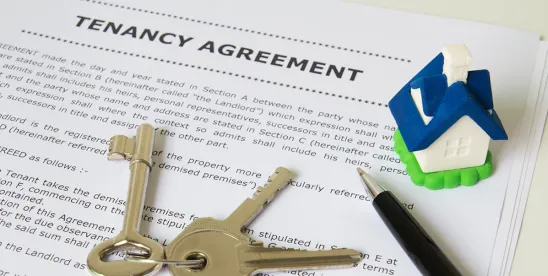In our ongoing series of blog posts, we have examined key negotiating points for tenants in triple net health care leases.
We also have offered suggestions for certain lease provisions designed to protect tenants from overreaching and unfair expenses, overly burdensome obligations, and ambiguous terms with respect to the rights and responsibilities of the parties. These suggestions are intended to result in efficient lease negotiations and favorable lease terms from a tenant’s perspective.
In our previous blog posts, we considered the importance of negotiating initial terms and renewal terms, operating expense provisions, assignment and subletting terms, maintenance and repair obligations, holdover provisions and surrender terms. This latest blog post focuses on negotiating lease terms governing tenant improvement allowances. A tenant should negotiate for landlord to provide a tenant improvement allowance to prepare the leased premises for the tenant’s occupancy and should consider important factors including the amount of the tenant improvement allowance, whether tenant or landlord will complete the work, and how and when the tenant improvement allowance will be paid.
Landlords often incentivize a desirable tenant by providing a tenant improvement allowance which provides a tenant with certain funds to pay for the costs in preparing the leased premises for the tenant’s occupancy. When negotiating the amount of a tenant improvement allowance, the parties generally consider the type of space needed for tenant’s purpose and how the premises will be used, the length of the lease term and the square footage of the premises.
Tenants will want the lease to specify that the tenant improvement allowance can be used for hard costs directly related to construction (such as labor, materials, and major systems such as HVAC) as well as intangible soft costs not directly related to construction (such as permitting, architectural and engineering fees, and feasibility studies). Leases often provide that any tenant improvement allowance amount not used within a certain time frame will be forfeited. Tenants will therefore want to ensure that time periods are clearly stated and long enough to account for potential delays, as well as include a carveout for force majeure events. Language that would allow tenant to apply any unused tenant improvement allowance amount to payment of future rent is also beneficial to tenant.
The parties will also negotiate who will complete the work. If the landlord is completing the work, the tenant should require that all plans and specifications be subject to tenant’s approval and that timelines for approval and substantial completion are clearly delineated. Whether tenant or landlord is completing the work, specific dates and time periods should be used rather than vague language such as “within a reasonable time” or “promptly”. Landlord will routinely include provisions for “tenant delays” which often advance the rent commencement date, so tenants should negotiate a fair definition of this term, which should not include situations outside of tenant’s reasonable control such as certain selected materials being delayed or unavailable. The tenant will also want to include a penalty for landlord’s delay in delivery, such as an extended free rent period or day for day rent credit, and eventually, a termination right and reimbursement for all costs incurred by the tenant in connection with the lease. Any landlord work should be substantially completed prior to delivery to tenant, meaning that landlord has completed its work to the point that tenant can commence its work (if any) and that landlord’s work is complete subject only to minor punch-list items. Minor pinch-list items are those which do not interfere with tenant conducting any tenant work or with tenant’s use and occupancy of the leased premises for the permitted use, and the lease should provide that landlord will address such items within thirty (30) days following delivery. If landlord is completing the work, it is often helpful to tenant to have the right to early access for pre-commencement activities such as installing IT equipment wiring and cabling and taking measurements to prepare for tenant’s work (if any). As long as such early access does not interfere with landlord’s work and tenant produces evidence of insurance, landlords often agree to such early access.
If the tenant is completing the work, the tenant should be sure to include reasonable and specific time periods for landlord’s approval of tenant’s contractors and plans and specifications, and tenant’s completion of the work. The lease should specifically state that landlord’s approvals shall not be unreasonably withheld, conditioned or delayed. Landlord’s failure to approve or disapprove of plans within the specified time periods should result in the plans being deemed approved by landlord so as to avoid delaying tenant in meeting construction deadlines. Tenant’s obligation to complete construction within the specified time period should also be subject to force majeure events. Another important factor to negotiate if the tenant is completing the work is the timing of payment of the tenant improvement allowance. The tenant will often front the improvement costs and will be reimbursed by the landlord upon completion of the work as certified by tenant’s architect and production of final lien waivers. Depending on the size of the project, tenants may want to push for staggered disbursements in two or more phases or monthly disbursements. Tenants should also look for any supervision and management fees that landlord may attempt to include in the tenant improvement allowance. Finally, tenants should be sure that the lease provides that if the tenant completes its work earlier than anticipated, tenant can commence operating in the premises and rent will not commence until the specified rent commencement date so that tenant gets the full benefit of any negotiated free rent period.
In our next post, we will cover the importance of negotiating exclusivity provisions and will offer suggestions for tenants to consider in order to protect their interests in leased premises.




 />i
/>i

